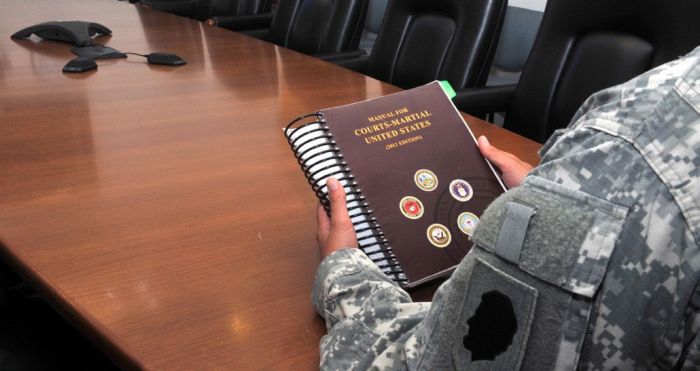Obey a court order crossword – Embark on a captivating journey into the intriguing realm of “obey a court order” crossword puzzles. These enigmatic word games not only test your vocabulary but also delve into the complexities of legal compliance and its far-reaching implications.
Prepare to unravel the intricacies of court orders, explore the ethical dilemmas they pose, and discover the cultural and societal impact they wield. Get ready to engage your minds and unravel the enigmatic tapestry of “obey a court order” crosswords.
Definitions and Explanations

In a crossword puzzle, “obey a court order” refers to the act of following a legal directive issued by a court of law.
Synonyms or alternative phrases for “obey a court order” include:
- Comply with a court order
- Abide by a court order
- Follow a court order
- Adhere to a court order
Legal Implications
Obeying a court order is legally binding and failure to do so can result in serious consequences, including:
- Fines
- Imprisonment
- Loss of rights or privileges
In some cases, disobeying a court order can also be considered a criminal offense.
Crossword Puzzle Examples

Crossword puzzles often incorporate legal terms, including the phrase “obey a court order.” These puzzles can vary in difficulty, appealing to a wide range of solvers.
The inclusion of legal terms in crossword puzzles adds a layer of challenge and interest for solvers with legal knowledge or a general interest in the law.
Example Puzzles
- Puzzle 1:A recent crossword puzzle in The New York Times featured the clue “Follow a judge’s ruling” with the answer “OBEY A COURT ORDER.”
- Puzzle 2:A puzzle in The Washington Post included the clue “Do what the judge says” with the answer “OBEY A COURT ORDER.”
Sample Puzzle
Here is a sample crossword puzzle clue with the answer “obey a court order”:
- Clue:Legal obligation to follow a judge’s ruling (4 words)
- Answer:OBEY A COURT ORDER
Difficulty and Target Audience
Crossword puzzles that include legal terms can range in difficulty from easy to challenging. Puzzles aimed at a general audience may include more straightforward legal terms, while puzzles designed for legal professionals or enthusiasts may incorporate more specialized terminology.
Legal Consequences

Failing to obey a court order can have serious consequences, including:
- Civil contempt:A finding of civil contempt means that the person has violated a court order that was intended to benefit another party. The consequences of civil contempt can include fines, imprisonment, or both.
- Criminal contempt:A finding of criminal contempt means that the person has violated a court order that was intended to uphold the authority of the court. The consequences of criminal contempt can include fines, imprisonment, or both.
Process for Enforcing a Court Order
There are a number of ways to enforce a court order, including:
- Motion for contempt:A motion for contempt is a request to the court to find a person in contempt of court for violating a court order. If the court finds the person in contempt, it can impose sanctions, such as fines or imprisonment.
- Writ of execution:A writ of execution is a court order that directs a law enforcement officer to seize property or take other action to enforce a court order.
- Garnishment:Garnishment is a court order that directs an employer to withhold wages from an employee’s paycheck to satisfy a debt.
Ethical Considerations: Obey A Court Order Crossword

Obeying a court order is generally considered a legal obligation, but there may be instances where individuals face ethical dilemmas due to perceived injustices or conflicts with their personal beliefs.
One notable example is the case of conscientious objectors who refuse to participate in military service due to moral or religious beliefs. While disobeying a court order to report for duty can result in legal consequences, individuals may feel compelled to follow their conscience and reject what they perceive as an unjust or unethical directive.
Role of Conscience and Personal Beliefs
The role of conscience and personal beliefs in decision-making cannot be overstated. Individuals must carefully consider the ethical implications of their actions, even when faced with legal obligations.
In cases where a court order conflicts with deeply held beliefs, individuals may experience significant moral distress. They must weigh the potential legal consequences of disobedience against the dictates of their conscience and the integrity of their own moral compass.
Ultimately, the decision of whether or not to obey an unjust court order is a deeply personal one. Individuals must carefully consider the ethical implications, the potential legal consequences, and the dictates of their own conscience.
Cultural and Societal Impact

Court orders hold immense cultural significance, reflecting societal values and beliefs. In societies that prioritize law and order, obeying court orders is often seen as a fundamental civic duty, fostering a sense of stability and predictability.
Court orders can influence social norms and behaviors by setting boundaries and shaping expectations. For instance, a court order prohibiting harassment may reinforce societal norms against such conduct, deterring individuals from engaging in such behavior.
Figuring out the “obey a court order” crossword clue? Why not take a break and explore the fascinating world of Walt Whitman’s poetry? A hand mirror walt whitman offers a unique glimpse into the poet’s mind and the complexities of his time.
When you’re ready to return to the crossword puzzle, you’ll have a fresh perspective to tackle the “obey a court order” clue.
Role of Media
The media plays a crucial role in shaping public perception of court orders. By reporting on high-profile cases and analyzing legal proceedings, the media can influence how the public views the justice system and its decisions.
Responsible media coverage can promote transparency and accountability, while sensationalized or biased reporting can undermine public trust in the courts.
Historical Context

The concept of obeying court orders has a long and complex history, dating back to the earliest forms of legal systems. In ancient Greece, for example, citizens were expected to obey the laws of the city-state, which were enforced by a system of courts and magistrates.
In the Roman Empire, the emperor’s edicts had the force of law, and disobedience could result in severe punishment.As legal systems evolved over time, so too did the mechanisms for enforcing court orders. In the Middle Ages, feudal lords had the power to enforce their own laws within their domains, and they often used this power to punish those who disobeyed their orders.
In the early modern period, the rise of nation-states led to the development of more centralized legal systems, with courts that had the authority to enforce their orders throughout the country.Landmark cases and events have also played a role in shaping the understanding of court orders.
In the United States, for example, the Supreme Court’s decision in Marbury v. Madison (1803) established the principle of judicial review, which gives courts the power to declare laws unconstitutional. This decision has had a profound impact on the relationship between the courts and the other branches of government, and it has helped to ensure that court orders are obeyed.
The Evolution of Legal Systems and Enforcement Mechanisms, Obey a court order crossword
The evolution of legal systems and enforcement mechanisms has been a gradual process, but it has been marked by a number of important milestones. One of the earliest milestones was the development of written laws. Written laws provide a clear and concise statement of the rules that people are expected to follow, and they make it easier for courts to enforce those rules.Another
important milestone was the development of a professional judiciary. A professional judiciary is made up of judges who are trained in the law and who are independent of the other branches of government. This helps to ensure that court orders are fair and impartial, and it makes it more likely that people will obey them.The
development of effective enforcement mechanisms has also been essential to the success of legal systems. In the early days of legal systems, enforcement was often carried out by private individuals or by local officials. However, as legal systems became more centralized, the state began to take on a greater role in enforcing court orders.
This led to the development of police forces and other law enforcement agencies, which have the power to arrest and detain those who disobey court orders.
Landmark Cases and Events
Landmark cases and events have also played a role in shaping the understanding of court orders. One of the most important landmark cases in the United States is Marbury v. Madison (1803). In this case, the Supreme Court ruled that it has the power to declare laws unconstitutional.
This decision established the principle of judicial review, which is a fundamental principle of American law.Another important landmark case is Brown v. Board of Education (1954). In this case, the Supreme Court ruled that racial segregation in public schools is unconstitutional.
This decision had a profound impact on American society, and it helped to pave the way for the civil rights movement.These are just a few of the many landmark cases and events that have shaped the understanding of court orders.
These cases have helped to establish the principle that court orders are binding on all citizens, and they have helped to ensure that the courts have the power to enforce their orders.
Top FAQs
What is the legal definition of “obey a court order”?
Obeying a court order entails complying with a directive issued by a judge or other judicial authority. It requires adherence to the specific terms and conditions Artikeld in the order.
What are the potential consequences of disobeying a court order?
Disobeying a court order can result in legal repercussions, including fines, imprisonment, or other penalties as deemed appropriate by the court.
Can I be held in contempt of court for disobeying a court order?
Yes, disobeying a court order can lead to a contempt of court charge, which can be either civil or criminal in nature.